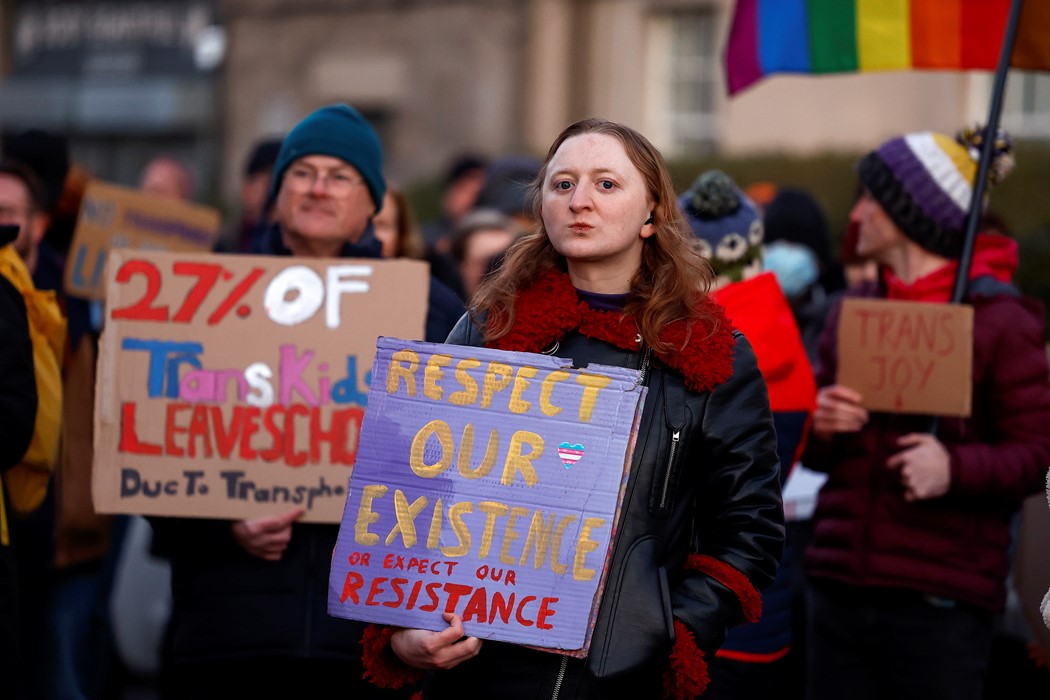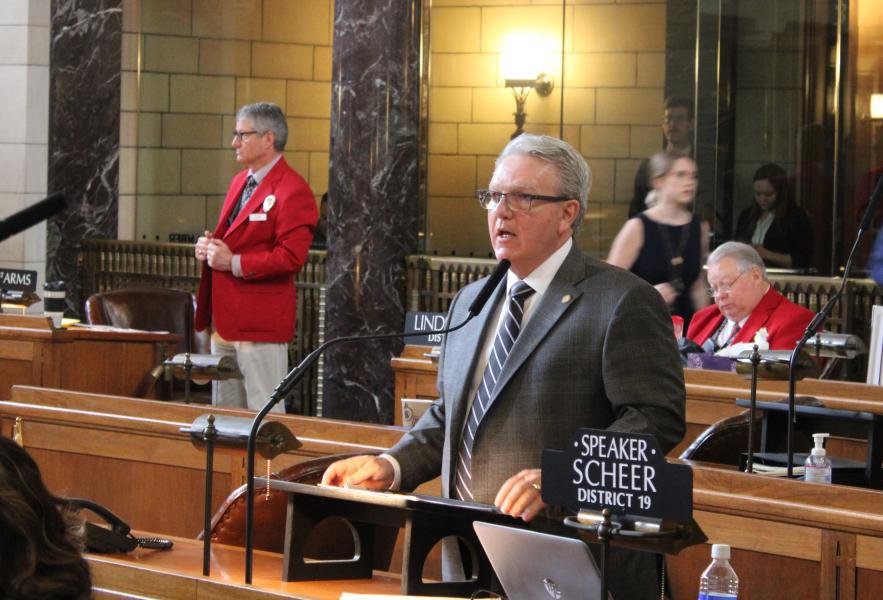How The UK's Legal Definition Of "Woman" Affects Sex-Based Rights For Transgender People

Table of Contents
Keywords: UK legal definition of woman, transgender rights, sex-based rights, gender recognition certificate (GRC), gender identity, Equality Act 2010, discrimination, transgender women, legal challenges, single-sex spaces, Gender Recognition Act 2004 (GRA), gender dysphoria.
The ongoing debate surrounding the UK's legal definition of "woman" has significant implications for transgender individuals' access to rights and services. This complex issue pits the desire for gender recognition and inclusivity against the need to protect sex-based rights and single-sex spaces. Navigating this legal landscape requires understanding the interplay between existing legislation, case law, and the ongoing reform discussions. This article explores the challenges and conflicting perspectives at the heart of this vital debate.
The Current Legal Landscape: Defining "Woman" in the UK
The UK currently lacks a single, universally accepted legal definition of "woman." The absence of a clear definition contributes significantly to the ongoing difficulties. Legislation relevant to gender and sex includes the Gender Recognition Act 2004 (GRA) and the Equality Act 2010.
The GRA allows transgender individuals to obtain a Gender Recognition Certificate (GRC), legally changing their gender. However, the GRA's impact is limited.
- Obtaining a GRC: The process involves a diagnosis of gender dysphoria, living in the acquired gender for at least two years, and providing evidence of intent to live in that gender permanently.
- Limitations of the GRC: A GRC does not automatically grant access to all services or legal recognition. For instance, while it alters legal sex for many purposes, it doesn't automatically provide access to all single-sex spaces or affect all legal definitions of “woman.” This leads to inconsistencies and ongoing legal challenges.
- Case Law: Various court cases have further shaped the understanding of “woman” in specific contexts, often highlighting the tension between gender identity and biological sex.
Impact on Access to Single-Sex Services
Transgender women frequently face challenges accessing single-sex services designed for cisgender women. This includes:
- Shelters: Concerns about safety and privacy can lead to exclusion from women's shelters, leaving transgender women vulnerable and without adequate support.
- Prisons: The appropriate placement of transgender women in prisons is a complex issue, balancing the need for safety and rehabilitation with the principles of gender identity.
- Changing rooms and bathrooms: Access to single-sex facilities, like changing rooms at gyms or public bathrooms, remains a significant point of contention, often resulting in discrimination and exclusion.
These situations spark debate centered on the balance between inclusion and the protection of sex-based rights. The concept of "sex" (biological) versus "gender" (identity) and its legal implications is central to these discussions.
Equality Act 2010 and its Application to Transgender People
The Equality Act 2010 prohibits discrimination based on protected characteristics, including "gender reassignment." This offers vital protection for transgender individuals.
- Gender Reassignment: The Act protects individuals undergoing gender reassignment, but the definition and application remain a source of legal complexity.
- Conflicts and Ambiguities: The Act can create conflict when attempting to balance protection from discrimination with the preservation of sex-based rights in areas like single-sex spaces.
- Need for Clarification: Clearer legal guidance and consistent judicial interpretation are crucial to ensure effective protection for transgender individuals without undermining the rights of others.
The Debate Surrounding Reform of the Gender Recognition Act
The GRA is currently undergoing review, leading to extensive debate about potential reforms.
- Arguments for Reform: Proponents argue that simplifying the GRC process would reduce bureaucratic hurdles and improve the lives of transgender individuals.
- Arguments Against Reform: Opponents express concerns about the potential impact on women's rights, safety, and access to single-sex spaces. They emphasize the importance of maintaining existing safeguards.
- Potential Impacts: Proposed reforms could significantly impact access to services and legal protections for both transgender and cisgender women, sparking intense discussions about the best path forward.
Conclusion
The UK's legal definition of "woman" and its impact on transgender people remains a complex and multifaceted issue. Balancing the rights of transgender individuals with the protection of sex-based rights requires careful consideration and a nuanced understanding of the legal landscape. Clear legal definitions and guidance are vital to ensure fairness and inclusivity without compromising the safety and rights of any group. The ongoing debate highlights the need for continued dialogue and a commitment to finding equitable solutions. Understanding the UK's legal definition of 'woman' and its effect on transgender rights requires ongoing discussion and engagement. Let's continue the conversation to find solutions that protect and support all members of society. For further information, explore resources from organizations like [insert links to relevant organizations, government websites, and academic articles here].

Featured Posts
-
 Post Trump Funding Cuts A Global Scramble For American Researchers
Apr 29, 2025
Post Trump Funding Cuts A Global Scramble For American Researchers
Apr 29, 2025 -
 Kuxiu Solid State Power Bank A Premium Investment In Lasting Power
Apr 29, 2025
Kuxiu Solid State Power Bank A Premium Investment In Lasting Power
Apr 29, 2025 -
 Wrexhams Promotion Ryan Reynolds Reaction And Celebration
Apr 29, 2025
Wrexhams Promotion Ryan Reynolds Reaction And Celebration
Apr 29, 2025 -
 Why Making An All American Product Is So Difficult
Apr 29, 2025
Why Making An All American Product Is So Difficult
Apr 29, 2025 -
 Kuxiu Solid State Power Bank A Deep Dive Into Its Longevity And Cost
Apr 29, 2025
Kuxiu Solid State Power Bank A Deep Dive Into Its Longevity And Cost
Apr 29, 2025
Latest Posts
-
 Federal Funding Cuts Devastating Trump Country
Apr 30, 2025
Federal Funding Cuts Devastating Trump Country
Apr 30, 2025 -
 Nebraska Senators Express Concerns Over Proposed Gretna Development
Apr 30, 2025
Nebraska Senators Express Concerns Over Proposed Gretna Development
Apr 30, 2025 -
 Gretna Mega Development Faces Opposition From Nebraska Senators
Apr 30, 2025
Gretna Mega Development Faces Opposition From Nebraska Senators
Apr 30, 2025 -
 Wrongful Death Lawsuit Filed Against San Diego County Sheriffs Department
Apr 30, 2025
Wrongful Death Lawsuit Filed Against San Diego County Sheriffs Department
Apr 30, 2025 -
 San Diego Sheriffs Office Faces Lawsuit After Inmate Dies In Custody
Apr 30, 2025
San Diego Sheriffs Office Faces Lawsuit After Inmate Dies In Custody
Apr 30, 2025
